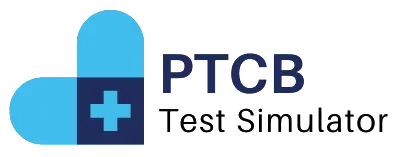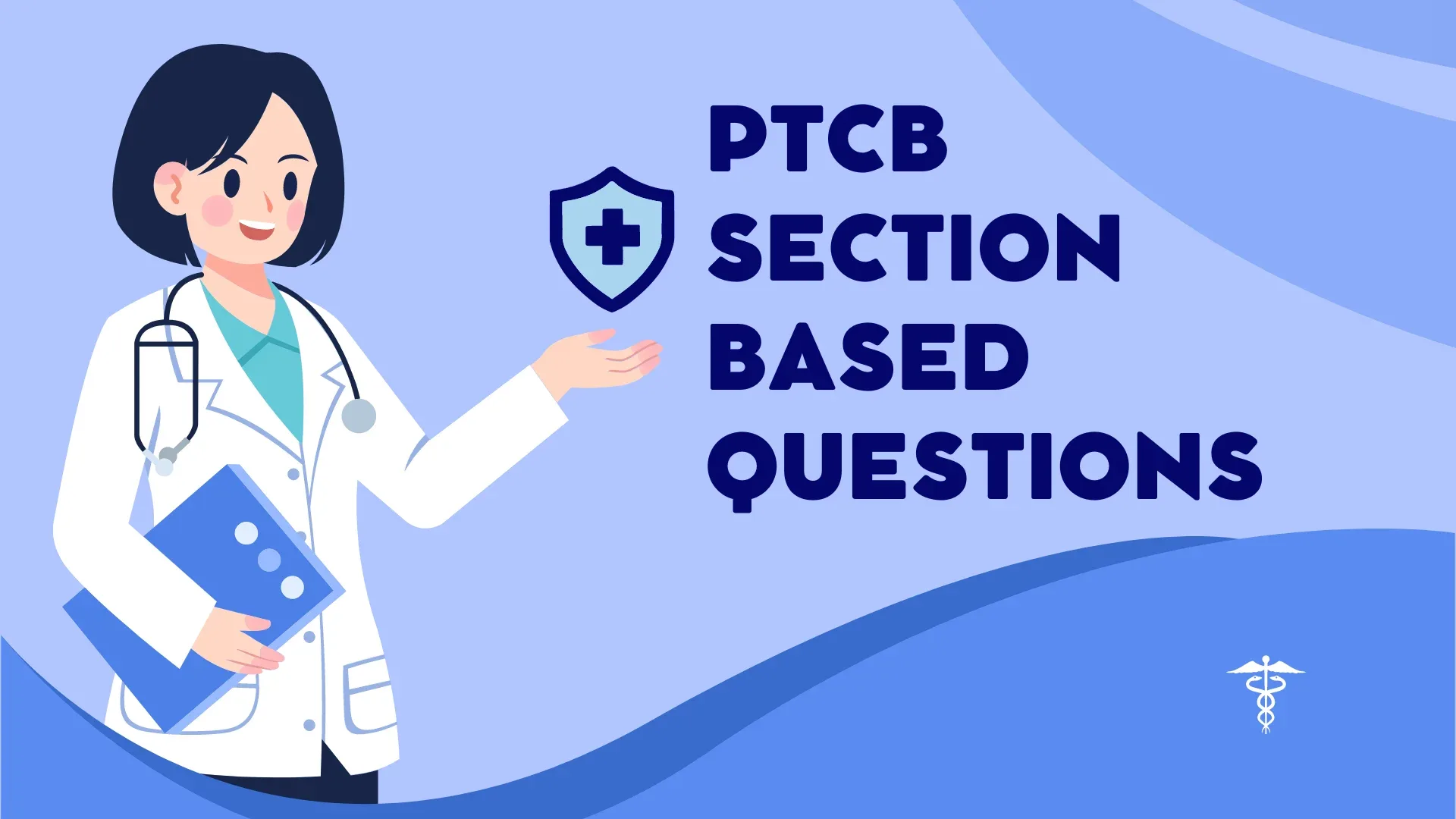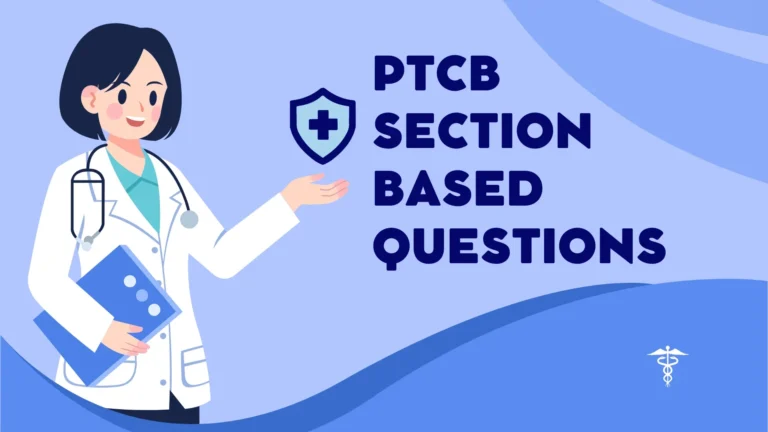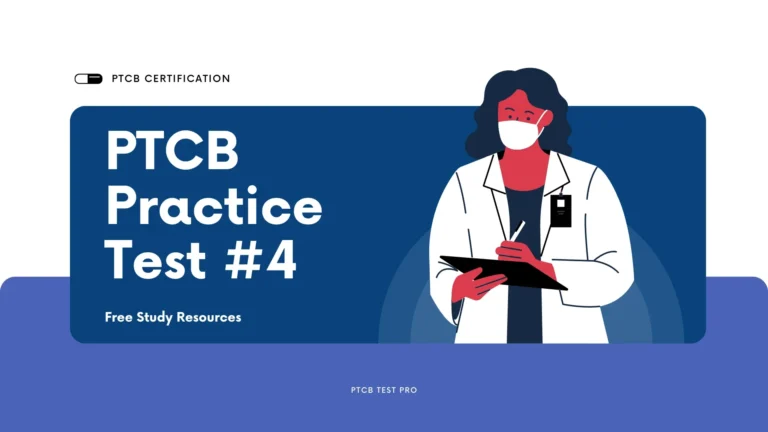PHARMACOLOGY PTCB QUIZ
The study of drug interactions with the human body and their therapeutic effects is known as pharmacology. Mastering the pharmacological concepts is essential for aspiring pharmacy techs to succeed in the Pharmacy Technician Certification Board exam. This article will explore a sample PTCB pharmacology test designed to mimic the content and rigor of the exam. We’ll focus on key concepts, and provide practice questions that can help you succeed.
Try More Practice Tests
Understand Pharmacology to Pass the PTCB Exam
PTCB test candidates in various areas of pharmacology including classifications of drugs, mechanism of action, drug side effects and interactions. Pharmacy technicians can assist pharmacists with dispensing medication safely and efficiently, while also educating their patients about proper medication usage.
Sample Questions for a Pharmacology Quiz
Here’s a sample quiz on pharmacology, with questions that are similar to the ones you may encounter in your PTCB test:
Classifications of drugs
Which of the following drugs is classified as an angiotensin-converting enzyme (ACE) inhibitor? A) Amlodipine B) Lisinopril C) Metoprolol D) Losartan
Answer: B) Lisinopril
Explanation Lisinopril and other ACE inhibitors are often prescribed to treat hypertension or heart failure. These drugs work by blocking the conversion of angiotensin-I to angiotensin-II, resulting in vasodilation.
What is the mechanism of action?
What is the mechanism of action of acetaminophen? B) Inhibition or blockade of COX enzymes C) Increased serotonin release D) Activation cannabinoid-receptors
Question: (A) Inhibition cyclooxygenase enzymes
Explanation Acetaminophen inhibits COX in the central nervous systems, which reduces the production of prostaglandins that are involved in inflammation and pain perception.
What are the Side Effects?
Hypertension, Bradycardia, Weight Gain and Constipation are all common side effects of selective serotonin reuptake inhibitors (SSRIs).
Weight Gain: (C)
Explanation The side effects of SSRIs are weight gain and gastrointestinal disturbances. These drugs are often prescribed to treat depression or anxiety disorders. Other side effects include insomnia, gastrointestinal problems, and sexual dysfunction.
Drug Interactions
What medication should warfarin-treated patients avoid due to bleeding risk? Aspirin, Ibuprofen, Clopidogrel and Simvastatin
Aspirin
Explanation The anticoagulant effect of warfarin can be potentiated by Aspirin (a nonsteroidal antiinflammatory drug, NSAID), increasing bleeding risk. Patients taking warfarin should not take NSAIDs unless their doctor has prescribed them.
How to Calculate Dosage
The patient is 70 kg and needs 0.1 mg per kilogram. Calculate total milligrams.
Answer: B) 70 mg
Explanation Multiply the weight of the patient (70 kg), by the dosage per kilogram (0.01 mg/kg). Total dose = 70kg x 0.01 mg/kg = 7.7 mg/kg
PTCB Exam Success Tips
To prepare for the PTCB pharmacology exam, you must have a thorough understanding of drug types, their mechanisms of action and side effects. These tips will help you to succeed.
- Review Drug Classifications. Familiarize with major drug classes and their indications. Attention to the distinguishing characteristics and therapeutic applications.
- Understanding Mechanisms of action: Concentrate on how drugs exert effects on the human body at the cellular level. Understanding the mechanisms of action helps to understand therapeutic effects as well as potential side effects.
- Understand Side Effects and Drug Interactions: Know the common side effects of different drugs and their potential interactions. It is important to understand side effects and interactions with other medications in order to ensure patient safety.
- Dosage Calculations Practice: Learn basic dosage calculations including conversions of units and weights. To improve accuracy and confidence, solve dosage calculations problems.
- Use Study Resources Make use of online study resources, such as practice tests, guides and other materials tailored for the PTCB test. You can use these resources to identify your weak areas and target your studies.
You can improve your knowledge of pharmacology by following these tips.
The conclusion of the article is:
The PTCB test includes a significant portion of pharmacology, which tests candidates on their knowledge of drug classifications and mechanisms of action. It also covers side effects and interactions. You can improve your knowledge of pharmacology by familiarizing yourself and practicing the sample questions. To maximize your chances of success, remember to stay organized and to approach every question with a methodical approach.
Good luck in your quest to become a pharmacy technician certified!



